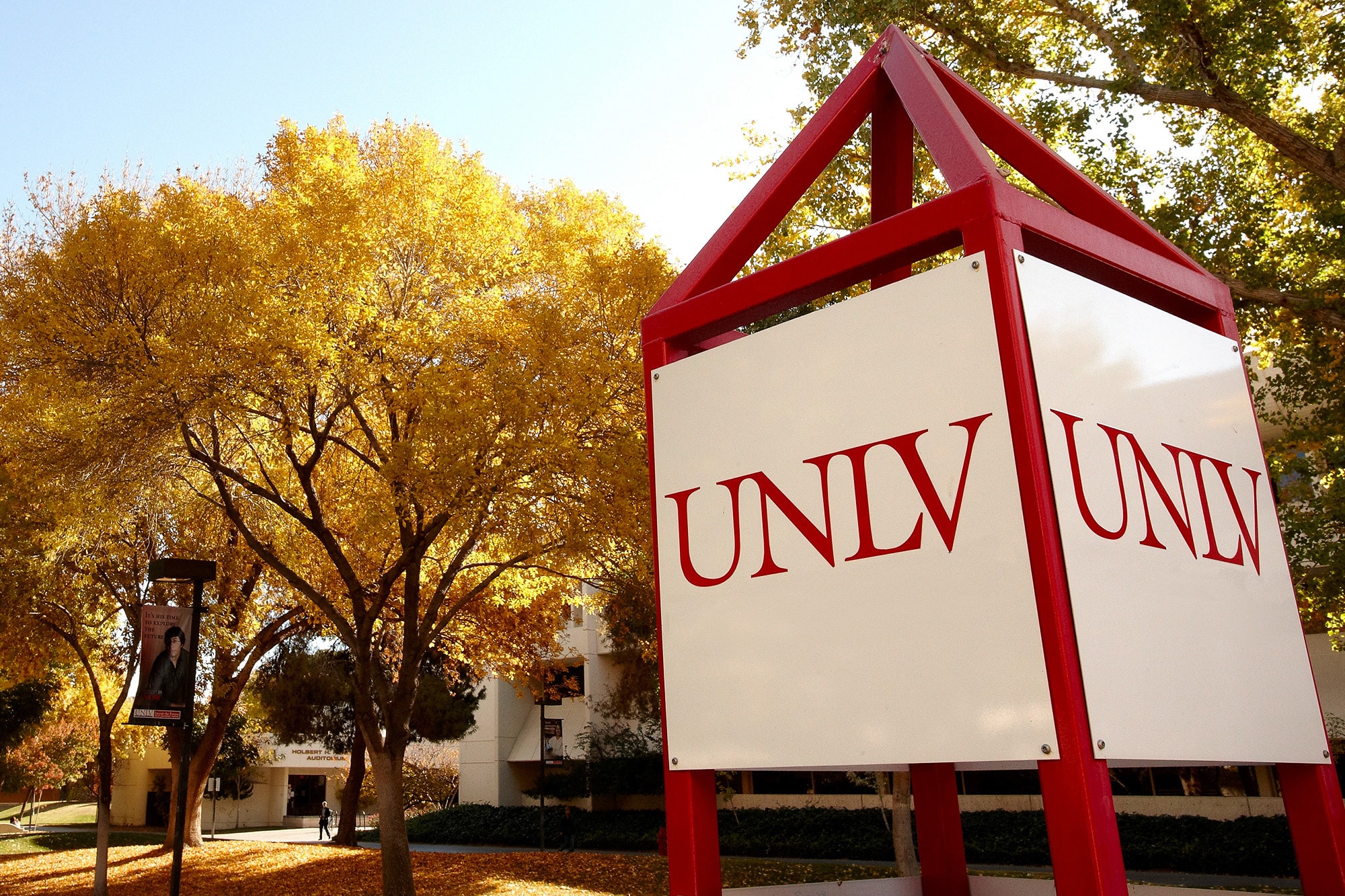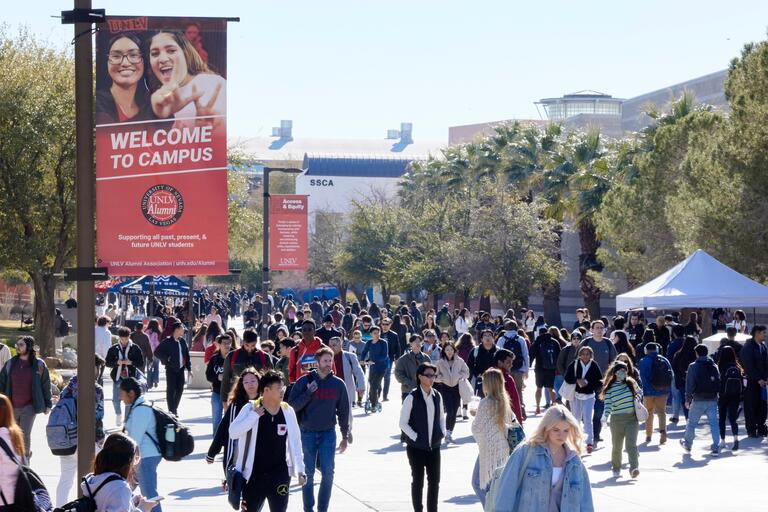UNLV has received a donation of 11 software licenses from Sun Microsystems, Inc., valued at $660,000, that will enable UNLV scientists to use recently donated computers to speed up their bioinformatics research.
The software licenses will be used to run several Sun Enterprise(TM) 6500 servers, which were donated by the Monsanto Co. in May for use in the bioinformatics field, a relatively new area of study that integrates mathematical sciences, computer sciences, and biology. Research on genome analysis, the study of the genes of humans, plants, and animals, is considered part of the bioinformatics field.
The software license donation, which was made through the UNLV Foundation, will allow UNLV researchers to continue building their research program in genome analysis.
"We are grateful to Sun Microsystems for its support of our research in this area," said UNLV President Carol C. Harter. "This software will enable us to pursue sophisticated research in an emerging area of study, which is advantageous to UNLV in a variety of ways. We are very enthusiastic about the gift."
"Sun continues to build on our heritage of establishing strong relationships within the higher education community," said Kim Jones, vice president of Global Education and Research for Sun Microsystems. "Sun and UNLV have a great opportunity to collaborate in the exciting field of bioinformatics. Sun servers and software are the ideal platform for UNLV to use to push the bounds of bioinformatics research today and in the future."
Ray Alden, UNLV's executive vice president and provost, said the donation is critical to the work of faculty in the bioinformatics program. "This donation will definitely advance the cutting-edge research being conducted by our biological sciences faculty and will support their efforts at obtaining grant funding. We appreciate the support of Sun Microsystems."
Jeffery Shen, a UNLV biology professor who conducts extensive genome analysis in his research, was instrumental in facilitating the donation. "Several faculty scientists, including myself, will be using this equipment to conduct their research. We were pleased to receive the computer hardware, but without the software licenses, we could not move ahead. We definitely needed the software licenses to put the computers to work."
Shen added that the license donation is integral to the success of UNLV's bioinformatics program because of the sophistication of the computers. "They require very complex software to coordinate the work of the more than 200 processors in the system. Without the license donation we would have had to dedicate a great deal of staff time to developing software in order to take advantage of the Sun servers donated by Monsanto."
He added that genome research produces a large amount of data and that vast computing power is required to process, analyze, and interpret the information.
Shen said the new servers and software will cut the time it takes to perform a given project substantially. He added that their genomics research has attracted the attention of scientists nationwide and is supported by major federal governmental agencies, including the USDA, the National Science Foundation EPSCoR (Experimental Program to Stimulate Competitive Research), and the National Institutes of Health Biomedical Research Infrastructure Network.
Ronald Yasbin, the incoming dean of the College of Sciences, said the donations will help UNLV become a center of excellence in bioinformatics. "The computers and the software licenses are two wonderful investments in modern biology. Dr. Shen should be congratulated for his hard work and fund-raising efforts, and Sun Microsystems and the Monsanto Co. should be congratulated for their philanthropy."
Carl Reiber, chair of the biological sciences department, said, "These donations and the program they support will serve as an important cornerstone for future research in the sciences at UNLV."
UNLV faculty researchers in this discipline are involved in such projects as finding the genes essential for vegetation to thrive in a desert environment; analyzing the difference between Africanized honeybees and domestic honeybees; examining the regulation of blood production; and studying plant responses to high carbon dioxide levels, which can result from global warming.
Shen added that in order to attract grant funding for these types of projects, an institution must have a bioinformatics program and the capacity to post research results on the Internet, both of which require cutting-edge computers and software. UNLV students will be involved in these projects.



